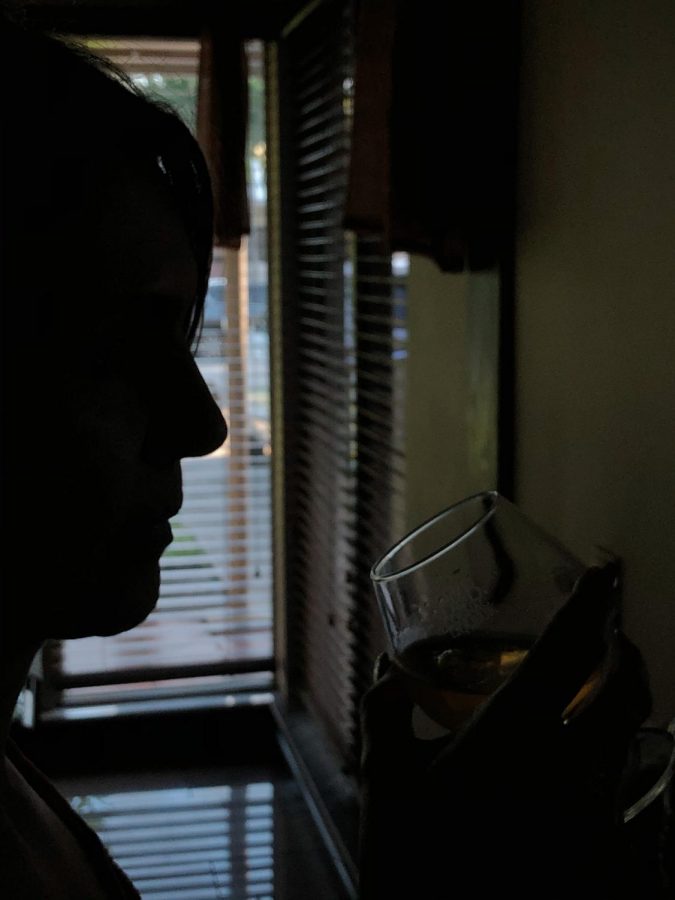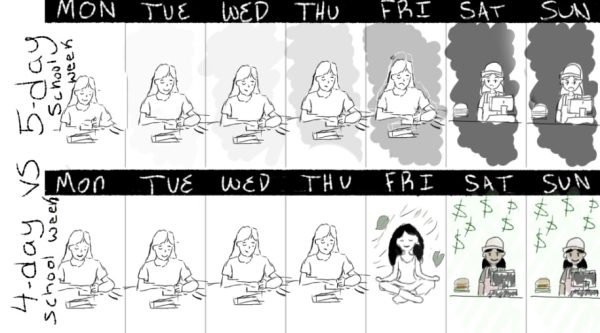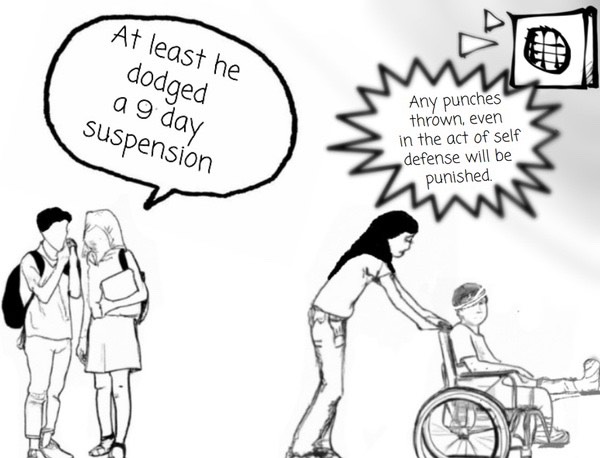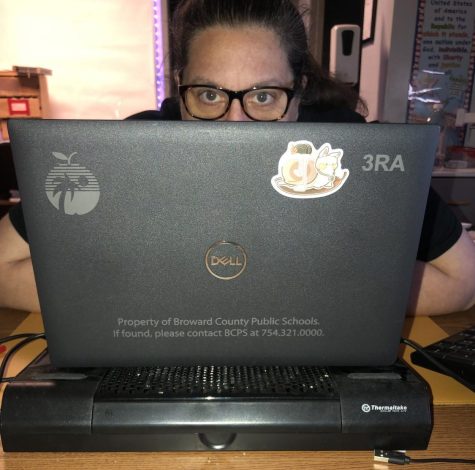Thinking Instead of Drinking
When teens drink, it cam cause difficulty paying attention in school, anxiety, depression, increased risk of trying other dangerous substances, and even alcohol dependency.
November 21, 2019
High School, some of the “best” years of your life. Maybe not so much for everyone. On that note, here is what J (first name initial used for privacy reasons) has been doing since she started 10th grade at SBHS (South Broward High School).
J has always admired cheerleaders at school, so she finally worked up the confidence to try out for the cheer-leading team; and made it! Being a part of the team really gave her motivation every day to get up and be productive. She dedicated a lot of her time into practicing cheers with the hopes to become the captain of her team one day.
“Some days when there wasn’t Cheer practice, I would end up spending all my free time in bed. I loved how much fun it was that when I wasn’t doing it, everything else just seemed boring,” said J.
J even managed to accomplish her fitness journey goal. She started eating better and exercising several times a week. Health began to mean a lot to her after her mother had a recent health scare.
You could say J was on a self-improvement path for a while. She even applied for a part time job at a local ice cream shop with the intentions of making some extra cash and not relying on her parents as much as she was used to.
Unfortunately, J’s path wasn’t always sunshine and rainbows like she thought it’d be after taking initiative into a happier, healthier lifestyle. Things took a dark turn, quick.
Here’s one story of a teenager on the verge of alcoholism. J seemed to have quite the controlled grasp over her life, and well she did…at least for a while.
“I was actually happy with my choices until I made this one. I was at a party with some best friends of mine. After settling down, they wanted to get drunk and I just felt like I’d look like a loser if I didn’t join, so I drank along with them all night,” said J.
J insisted that this was a night she regrets most. She lost count of how much alcohol she drank, had a terrible hangover the next day, and was unable to remember the details from the previous night.
J claims that she didn’t even enjoy herself but pretended to after hearing her friends flaunt about how much fun they had.
“I started drinking thinking that I’d be able to control it, but believe it or not, after a few parties and a few drinks, I began to rely on that stuff,” said J.
According to addictioncenter.com, alcohol is one of Americas leading addictive substances with over 18 million addicted. Therefore, it’s not surprising to hear that she began to rely on the substance.
The last couple months that followed up after her first time getting drunk included her going to parties or even small “get togethers” with friends drinking almost every time.
“It just became a habit, a bad one. I started ditching cheer practice and the gym, I ate fast food all the time. Literally months of practicing good habits went down the drain after one night, it’s kind of crazy,” said J.
She even ended up no longer being a part of the cheer team. All it took was one time, J said it herself. The lifelong detrimental effects of alcohol are often overlooked, that is especially by teens. Alcohol can cause your brain to process things slower, heart disease, liver damage, etc.
After informing J about what can happen to her body if the drinking continues, she claimed she would stop.
“I’ve actually been leaning off it. I want to eventually get back on the track I was on prior to that party,” she said.
Teens often fail to notice that once a habit begins at such a young age, it becomes harder to quit. As a teen, they are still molding into a person and their brains are still extremely malleable in a sense. If a teen often incorporates drinking into their life, their body will begin to expect it and almost cement that idea in over time.
By J making the initiative to stop drinking, she is saying no to alcohol and yes to a future.











